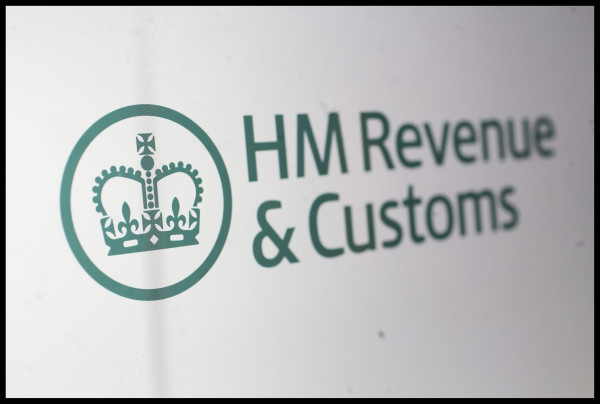

In April 2016 the International Consortium of Investigative Journalists made public the investigation of a huge mass of leaked documents from Panamanian law firm Mossack Fonseca. In the end, the leaked data totalled about 2.6 terabytes. Some 100 partner news organisations around the world were involved in the investigation – including BBC’s Panorama and The Guardian newspaper.
The identity of the leaker/hacker is still not publicly known. However, we know they succeeded in taking everything from basic company registry and beneficial ownership information to the most frank and intimate copy correspondence with clients and other advisers.
Journalists were able to find widespread irregularities such as the backdating of documents – often transparently recorded in correspondence that the parties never thought would find itself in journalistic or law enforcement hands.
In tax terms alone, leaked information shared with the world’s tax authorities has now led to the known recovery of more than £1bn worldwide in evaded or avoided taxes, including about £200m in the UK.
At least where shedding a light on UK tax wrongdoing is concerned, subsequent journalistic attempts have proven less fruitful.
In 2017 the ICIJ broke the so-called Paradise Papers, focusing on a leak from reputable international law firm Appleby and its then trust business. Although journalists were able to titillate their readers and viewers with details of wealthy clients’ previously private offshore financial arrangements, the exposé ultimately fell flat because 6m leaked documents did little other than show a bona fide law firm going about its legitimate business.
Despite BBC and Guardian journalists intent on finding wrongdoing, they simply did not find it. Sir Lewis Hamilton, for instance, was shown to have used clever planning to prevent a £3.5m VAT charge on his private jet – nothing illegal in doing that in the way he was professionally advised.
Appleby defended its position robustly, took legal action against The Guardian and BBC for their use of stolen confidential records in the claimed public interest and forced The Guardian and BBC into a private settlement.
Of course, the UK public interest, where tax is concerned, is closely guarded by HM Revenue & Customs. Vigilante journalists are but an informal adjunct.
Information gathering
HMRC is an eager consumer of leaked offshore financial information, but it goes about its work forensically and privately. HMRC’s core remit – to which everything else is secondary – is to collect taxes, not to broadcast or publish.
Once HMRC has an inkling of where to start digging, it has a wide array of statutory information-gathering powers and an army of skilled investigators of its own. However, HMRC has finite resources and must allocate them carefully. Many parliamentarians and journalists have vented about the success of HMRC in bringing scores of successful criminal and civil investigations from the Panama Papers compared to its apparent failure to do the same with the Paradise Papers. However, perhaps blinkered by a general prejudice towards offshore financial centres, they have failed to appreciate the difference between offshore done legitimately and offshore done wrongly.
HMRC and its overseas counterparts have never had and shared so much information about overseas arrangements from sources other than the ICIJ. HMRC has access to far more information outside of the public domain than journalists sometimes assume – whether that be from automatic information exchange arrangements like the Common Reporting Standard, directly from dialogue with taxpayers, from privileged access to overseas beneficial ownership registries or from co-working with its overseas counterparts.
Tax proceedings
Short of public appeals in the tax courts or criminal trials, most offshore tax investigations into tax evasion, tax avoidance or simple error are conducted and settled as civil matters completely outside the public domain. This prevents any public grandstanding leading to deadlock but is mindful of the potential embarrassment of public proceedings for the taxpayer/the risk of an embarrassing loss or unhelpful legal precedent for HMRC if private agreement cannot be reached, as well as the potential escalation of legal costs for both sides. Privacy is actually very important here in serving the public interest.
Where offshore leaks involving stolen information and potential taxpayer criminality are concerned, private civil proceedings also avoid potential arguments in criminal courts about the admissibility of stolen data for the purposes of a criminal prosecution – while still having the fallback for HMRC that were a civil dispute to come before a civil tax tribunal, that is, because it could not be resolved privately, a tax tribunal could be expected to allow “discovery assessments” of tax relying on such information to stand since for these purposes once a “discovery” is made it cannot be unmade regardless where the information might come from.
We begin this decade with the Pandora Papers; an ICIJ exposé of around 12m leaked documents from the 14 different offshore service providers said to be involved. So far, at least where the UK is concerned, journalists seem to be making much of beneficial ownership information and are making the private business dealings of wealthy people public without immediately pointing to obvious wrongdoing.
That is not to say that HMRC will not find the Pandora Papers information it has inevitably acquired from the ICIJ useful. However, where traditional HMRC investigation work is concerned, the utility may largely be limited to helping better inform existing investigations into complex tax avoidance arrangements or to helping HMRC identify potential targets for investigation – the sort of resource intensive investigations that HMRC can only do in limited numbers and which might lead to the payment of further tax, but typically do not involve criminality. Such matters are normally settled one way or another between HMRC and a taxpayer’s advisers on the respective strength of their technical legal arguments.
In many more cases we can confidently expect that HMRC will employ a methodology that it has developed and used wholesale in the time since the original Panama Papers publications in 2016 – nudge letters. HMRC will process the whole mass of data to identify UK taxpayers with offshore connections and then mass mail them hinting that their UK tax returns might not be right based on unspecified information received by HMRC that they have offshore assets, income or gains. Taxpayers are then invited to voluntarily self-disclose any tax irregularities, should they exist, rather than live with the implicit threat of investigation hanging over them.
Nudge letters are remarkably effective at flushing out non-compliance and show that, at least where HMRC is concerned, small unspecified nuggets of information applied privately can go a long way. For their part, journalists are unlikely to be fed back more than a few vague and less-than-headline-grabbing statistics.
Andrew Park is tax investigations partner at Andersen



